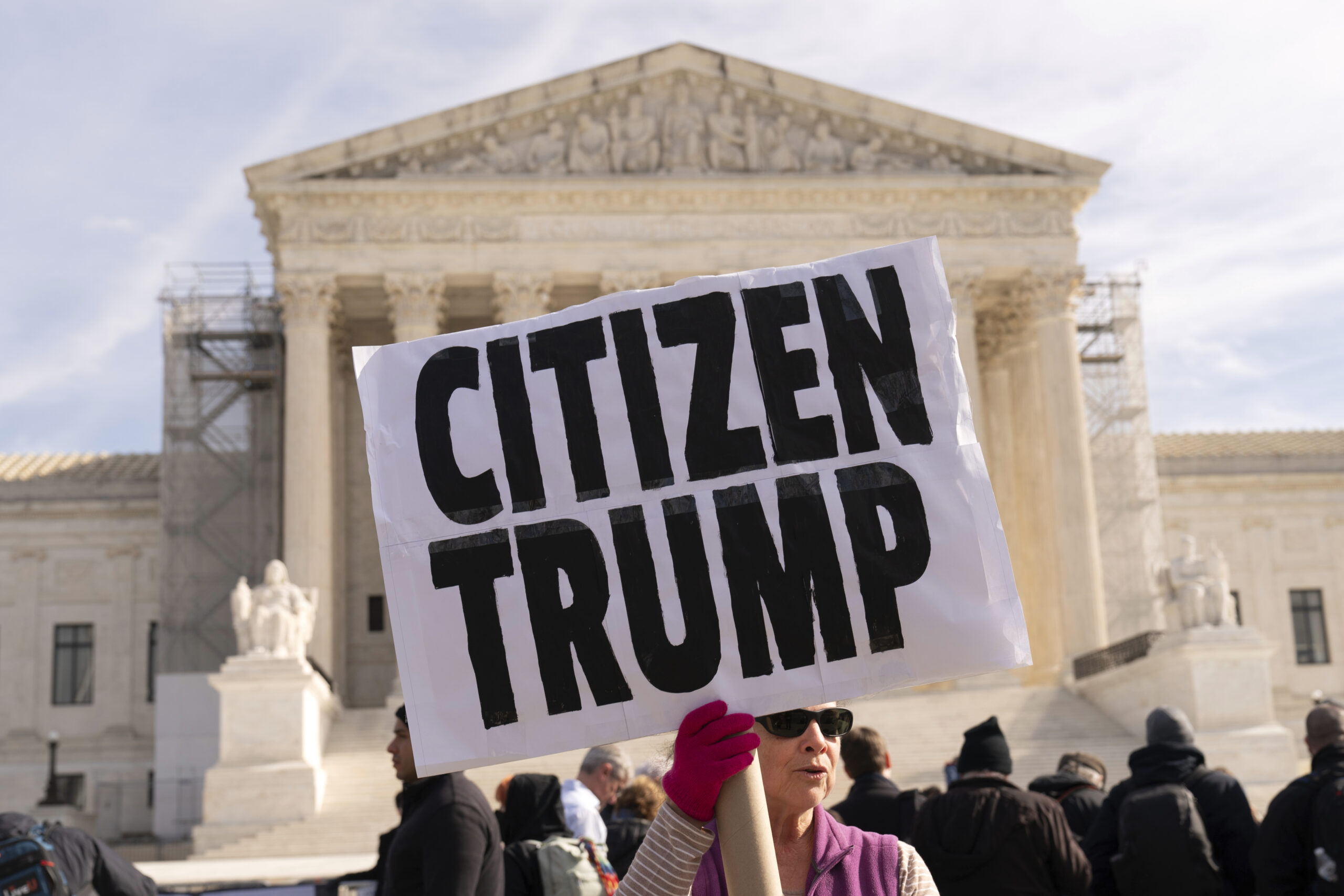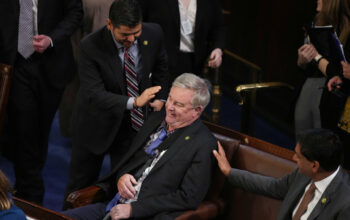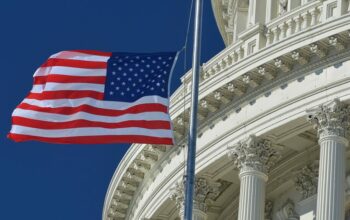In a recent pronouncement, it appeared that a significant majority of the Supreme Court justices lean towards reverting a Colorado legal decision that presently excludes former President Donald Trump from participating in the state’s upcoming GOP primary.
During Thursday’s proceedings, it emerged that the former President, aged 77, alongside his legal counsel, is contesting the December 19 ruling by the Colorado Supreme Court. The state court had ruled Trump ineligible for the March 5 Republican primary based on an alleged infraction of the Constitution’s “Insurrection Clause.” This clause became the center of contention due to events surrounding January 6, 2021, when a violent breach at the Capitol occurred.
Presenting their case, Trump’s legal team argued on multiple fronts. They contended that the responsibility of enforcing the Insurrection Clause lies exclusively with Congress and not with individual states. Furthermore, they maintain that this clause is inapplicable to the role of the president. Additionally, they posited that the ex-president did not partake in an insurrection, even as his supporters disrupted the certification process of Joe Biden’s electoral win in 2020.
Among the various arguments put forth, the idea that Congress holds predominance in enforcing the clause resonated most with the Justices. Notably, during oral arguments, Chief Justice John Roberts expressed concern over potential repercussions if the Colorado verdict were to be sustained. He speculated that such a precedent might lead states to capriciously disqualify political figures from opposition parties, effectively leaving a small number of politically ambiguous states to determine the outcome of presidential elections.
Justice Roberts, apprehensive about the implications of such actions, voiced, “It’ll come down to just a handful of states that are going to decide the presidential election. That’s a pretty daunting consequence.”
“Your Honor, the fact that there are potential frivolous applications of a constitutional provision isn’t a reason,” argued attorney Jason Murray, representing a group of Colorado voters who sought to remove Trump from the ballot.
“The question you have to confront,” liberal Justice Elena Kagan told Murray at another point in his argument, “is why one state should decide who gets to be president of the United States.” Conservative Justice Samuel Alito asked Murray about a hypothetical in which candidates for “diplomatic reasons think that it’s in the best interests of the” US to send funds to a foreign nation who described Washington as “its biggest enemy” — a reference to the Obama-Biden policy toward Iran.

















